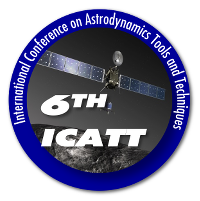Speaker
Mr
Luc Maisonobe
(CS SI)
Description
Orekit is a core space flight dynamics library published as free software under the terms of the permissive Apache Software License V2.
Since its inception in 2002, Orekit was designed as a low level layer providing the foundation objects for operational applications.
From the very beginning, the foundation objects included time, frames, orbits, but also attitude, maneuvers and a rich framework for state propagation with continuous output and on the fly detection of discrete events. As new versions were published, this set of features has been extended, with new propagators (the semi-analytical DSST being a major example), new predefined events (16 as of end 2015 and counting), new frames and various improvements.
As an open-source project, Orekit is essentially driven by its users requests and contributions. Looking back at the project evolution, one notices that after the initial stabilization phase during which the core features were completed, users requests led to introduce more and more intermediate features. These features where more mission or operation-oriented, showing us the library was used in various contexts for real problems solving. Many features added in the last two or three versions were really not envisaged at project start. These features clearly show the benefits we get from an open community. Some users have a problem to solve that first appears to be really mission-specific, but often as they notify the project about it, it appears more general than expected and can benefit other users after some reformulation. One typical example is the ellipsoid tessellation. This strange feature was needed for one project in early 2015, but just one month after its design, a second project raised a similar need and a few weeks later an independent user opened a feature request on the same topic.
Some other features have been on our plans for a few years without being implemented, both because of lacking resources to do the job and because they were considered at the boundary of Orekit scope. This was the status of orbit determination. Here again, as more and more users were demanding for it, we finally embarked on it and added it.
This presentation focus on how an open-source project can interact with its users while still maintaining a general orientation, using some examples from the last few releases of the library, up to the latest addition of orbit determination.
| Applicant type | First author |
|---|
Primary author
Mr
Luc Maisonobe
(CS SI)
Co-author
Mr
Pascal Parraud
(CS SI)

